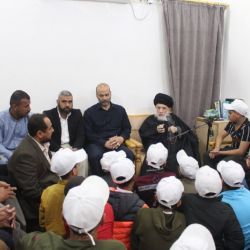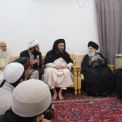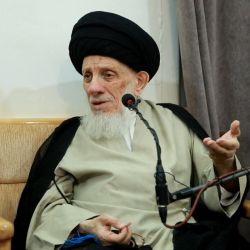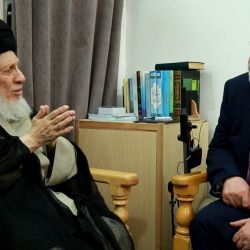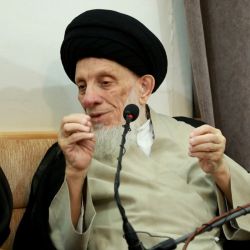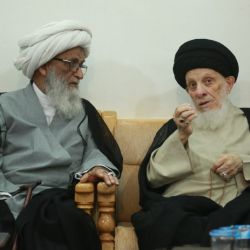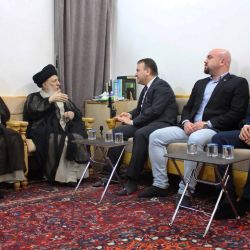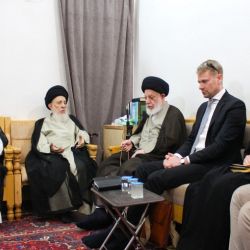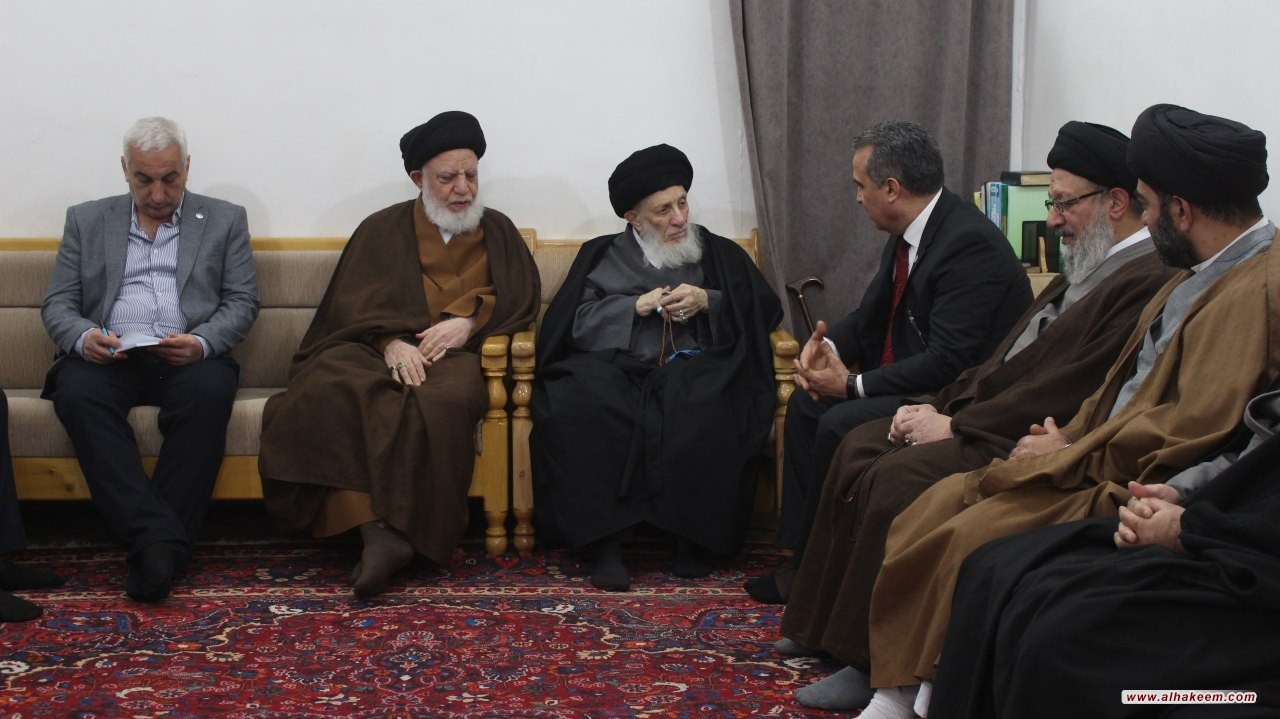
His Eminence Grand Ayatollah Sayyid Mohammed Saeed Al-Hakeem, on 15 February 2020, received representative of the Food and Agriculture Organization (FAO) of the UN in Iraq, Dr. Salah Al-Haaj Hasan and his team.
Dr. Salah Al-Haaj Hasan presented a report on the projects undertaken by FAO, consisting of ways in which agriculture can be improved in rural and semi-urban areas in Iraq, in order to ensure food provision for Iraq and a decent life for farmers.

